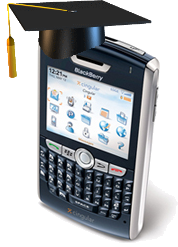Ways for students to improve smartphone and tablet battery life

Running from class to class, staying on board with emails and your social media accounts, using schedule and note-taking applications -- sometimes, your smartphone or tablet won't keep up.

Now school is back in session, some students will be getting to grips with their latest shiny toys -- but might not know how to get the most battery life out of them. Jeffrey Becker, Director of Marketing of DU Battery Saver, has come up with a number of tips for students who want their smartphone or tablet to last just that little bit longer, but won't cost students anything extra to implement.
Insufficient battery life often remains an issue, and apart from buying portable power packs for emergency charging, there are a number of ways a student can improve longevity for their gadgets.
See also: 20 essential iPhone, iPad apps for college students
1. Focus on the app at hand: If you have e-books for your classes or use your device to take notes, make sure that there are no unnecessary apps running in the background. Not only can they be a distraction -- (I'll just check Facebook quickly..) -- they can also significantly drain your battery over time.
2. Bright isn't always smart: A device's display can eat up over 60 percent of its battery life over the course of a day. To combat this, keep smartphone and tablet screens slightly dimmed when you're using them. You're likely to adapt to or not even notice small changes, but it can result in hours added to battery life.
3. Connections for life: Classmates are often friends for life. But when it comes to battery life, network services can be your enemy. If you don't use Wi-Fi networks, be sure to turn off the Wi-Fi setting, to stop it continually scanning for nearby, available networks. On the other hand, if school Wi-Fi is available, turning off cellular data (3G, 4G or LTE) can help matters.
4. Take the time to unplug: Having your device always connected to a charger can actually damage its batteries, making them less able, over time, to hold a charge. For optimum battery health, charge your battery in the evening until it's at 95 to 100 percent. Allow it to remain unplugged overnight, then top off the charge in the morning before school.
5. Install a trusted battery saving app: If manual changes are too much of a hassle, a number of battery saving applications on the market can do it for you. On Android, Juice Defender, DU Battery Saver and Easy Battery Saver are worth exploring, while on iOS, Battery Saver, Battery Doctor and Battery Life Pro are popular ways to save extra juice.
A number of additional ways to save your battery include:
- Turn off BlueTooth
- Turn off location-based services
- ioS: Turn data push off
- Change your settings to collect new email less often
- and remember to keep your phone cool, as temperature changes impact on battery performance.